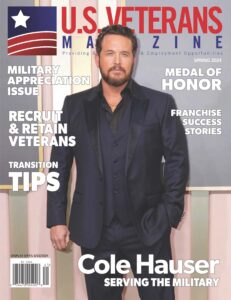Best Jobs for Ex Military – Law enforcement, IT management and the medical field are all career fields that you’ve been told are great for veterans. And while these jobs are fantastic for transitioning veterans in almost every way, they are far from the only options veterans can pursue in their post-military life.
Suppose you’re looking for a career different from the “veteran norm” while still providing job security and reasonable salaries. In that case, one of these unique career profiles might be for you:
Highest Paying Civilian Jobs After Military
Dental Hygienist
Job Description: Dental hygienists examine patients for signs of oral diseases, such as gingivitis, and provide preventive care, including oral hygiene could be one of your best jobs for ex military. They also educate patients about oral health. Their job tasks usually include teeth cleaning, taking x-rays, assessing oral health and documenting patient care.
Desired Skillset:
- Critical thinking
- Communication
- Problem-solving skills
- Dexterity
Education: Dental hygienists typically need an associate degree in dental hygiene; they may also get a bachelor’s degree. Programs usually take three years to complete and offer laboratory, clinical and classroom instruction. Areas of study include anatomy, medical ethics and periodontics — the study of gum disease.
Annual Salary: $77,810
Air Traffic Controller
Job Description: Air traffic controllers coordinate the movement of aircraft to maintain safe distances between them. They manage the flow of aircraft into and out of the airport airspace, guide pilots during takeoff and landing and monitor aircraft as they travel through the skies.
Desired Skillset:
- Communication
- Multi-tasking
- Decision-making skills
- Math proficiency
Education: Candidates who want to become air traffic controllers typically need an associate or bachelor’s degree, often from an AT-CTI program. Bachelor’s degree fields vary; examples include transportation, business or engineering. Other candidates must have three years of progressively responsible work experience, have completed four years of college or have a combination of both, but it is definitely one of the best jobs for ex military .
Annual Salary: $129,750
School Principal
Job Description: Elementary, middle and high school principals oversee all school operations, including daily activities; which would be another best jobs for ex military. They coordinate curriculums, manage staff and provide students with a safe and productive learning environment. In public schools, principals also implement standards and programs set by the school district and state and federal regulations. They evaluate and prepare reports based on these standards by assessing their school’s student achievement and teacher performance.
Desired Skillset:
- Interpersonal skills
- Leadership
- Problem-solving skills
- Communication
Education: Principals typically need a master’s degree in education leadership or education administration. These master’s degree programs teach prospective principals how to manage staff, create budgets, set goals and work with parents and the community. Principals also need teaching experience.
Annual Salary: $98,870
Wind Turbine Technician
Job Description: Wind turbine service technicians, also known as windtechs, install, maintain and repair wind turbines. They are usually responsible for inspecting wind turbine towers’ exterior and physical integrity, performing maintenance and repairs and collecting turbine data.
Desired Skillset:
- Physical strength
- Physical stamina
- Troubleshooting skills
- Detail-oriented
Education: Most windtechs learn their trade by attending technical schools or community colleges, where they typically complete certificates in wind energy technology. However, some workers choose to earn an associate degree. Windtechs usually acquire knowledge in mechanical systems, computers, electrical and hydraulic maintenance, first aid, rescue and safety and CPR.
Annual Salary: $56,260
Railroad Workers
Job Description: Railroad workers ensure that passenger and freight trains run on time and travel safely. Some workers drive trains, some coordinate the activities of the trains and others operate signals and switches in the rail yard. Many servicemen and women go into this field and they soon find out it becomes a best jobs for ex military.
Desired Skillset:
- Customer-service skills
- Hearing and visual ability
- Hand-eye coordination
- Leadership skills
Education: Rail companies typically require workers to have a high school diploma or equivalent. However, employers may prefer to hire workers with postsecondary education, such as coursework, a certificate, or an associate or bachelor’s degree. Locomotive engineers and conductors must be certified by the Federal Railroad Administration (FRA).
Annual Salary: $64,150
Sources: U.S. Bureau of Labor Statistics, Trade-schools.net



